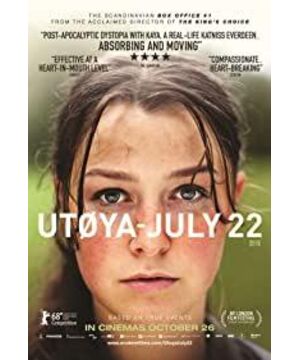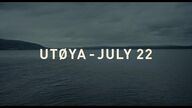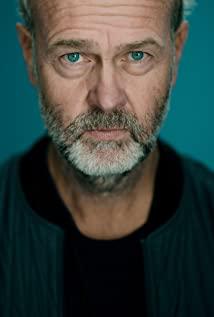It just so happens that this year two films coincided with the 2011 Norway terror attacks. One is "July 22nd" by British director Paul Greenglass, produced by Netflix, and the other is "July 22nd" by Norwegian director Erik Poppe . Compared with Greenglass's excellent audio-visual works that examine horror events from multiple perspectives, this "Isle of Uter" may only be reduced to a failed thriller type film. The director used a one-shot long shot, followed closely with the heroine, and was almost close to the character's handling, allowing the audience to experience the effect of a terrorist attack on the spot. This kind of film experiment often appears in thriller horror films, where events take place in a relatively limited and closed space, and the characters' perspectives are relatively single. However, the use of this form of presentation of this complex and controversial story is too narrow. Apart from letting the audience feel the fear of the heroine in the play, there is no way for people to understand the cause and effect of the entire horror incident, let alone The reflection on what social problems have arisen from the above, but instead, it is suspected of using the tragedy as a gimmick in exchange for sensory stimulation. The experimental method of long shots makes the narrative point of view single and lacks change, and also makes it difficult to shape the characters. In the end, the film can only be reduced to a meaningless thriller, which fails to fully demonstrate the broader pattern of the subject, which is regrettable.
View more about Utøya: July 22 reviews







